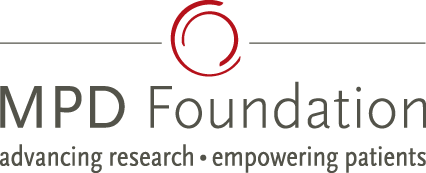With increased access to and understanding of technology, people are finding their way online, searching out interests like cooking, basketball and even myelofibrosis. Once assumed to be the domain of the young and frivolous, a new group has turned to the internet as a means of learning about and connecting to what is important to them. This is especially true for patients with orphan diseases like polycythemia vera, essential thrombocythemia and myelofibrosis where the next closest patient may be hundreds of miles away.
The use of new technology like Twitter, Facebook and listservs has created a network previously unheard of in the health community. Patients (and their families) now have access to a wealth of information and anecdotal first hand accounts of patient experiences with doctors, treatments and tips for living day to day with a chronic illness. If there is a gap between the clinical advice of a physician and the need of a patient to hear directly from someone who has experienced an MPD, social media and online networks can bridge the gap for some patients.
We've long linked to MPD-focused forums at www.mpdfoundation.org, including MPDChat, MPDNet and MPDSupport. All offer a means to discuss and learn from other patients and occasionally doctors. In addition we've branched out to other social media outlets such as Facebook where you can keep up with MPD news and interface with other patients. It seems strange to say, but if you are someone with access to technology, it's never been a better time to have an MPD.

I have to agree that after I was diagnosed with ET, I found a number Facebook groups that were very helpful in understanding what was happening to me.
ReplyDeleteWhile the information from the MPD Foundation, Leukemia & Lymphoma Society, et al, helped me better understand the mechanics of the illness and what is being done toward finding a cure, I found the facebook groups helped me feel less alone by putting a face to people all over the world that are being affected directly or indirectly by these rare diseases. Reading about others experiences with medications, side effects and symptoms was also educational and sometimes reassuring.
In addition to the MPD Foundation facebook page (http://www.facebook.com/pages/MPD-Foundation/79519218399#!/pages/MPD-Foundation/79519218399?ref=ts), below is a list of links to other MPD/Blood Cancer Facebook groups and pages that I have found. I hope someone out there finds this helpful too. If the links don't work, they can be copied and pasted into the URL window of your web browser.
http://www.facebook.com/group.php?gid=9686810852
http://www.facebook.com/group.php?gid=110475215640917
http://www.facebook.com/group.php?gid=2214557564
http://www.facebook.com/group.php?gid=61375180073
http://www.facebook.com/group.php?gid=14563258591
http://www.facebook.com/group.php?gid=6207066325
the current treatment for pv is very crude and very unsatisfactory in the 21st century. this whole hydroxl urea thing + cocktail of medication with unknown risks needs to be improved on and fast. the current rate of progress towards new therapies is extremely slow - and clearly not satisfactory in terms of delivering results, it is piecemeal, uncoordinated globally and across organizations to name but a few issues. i have pv.
ReplyDelete